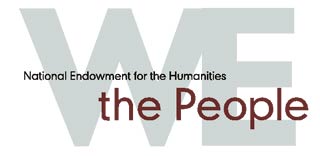On this page:
For Teachers » Core Concepts
CONCEPT 3
People living in the thirteen colonies increasingly defined themselves as different from other British subjects as ideas of what it meant to be an American emerged over time.
Who are we? How do we define ourselves? What does it mean to be what we are?
These are fundamental human questions, applicable to any people at any moment in time. Between 1764 and 1776 British subjects living in America experienced a radical change in their perception of their own identity. It is important that students develop an understanding of how colonists began to re-think what it meant to be “British” and gradually to embrace the task of fashioning a new identity as “Americans.”
- the colonists’ collective sense of identity changed over time (and included not only what they were not (England), but what they were)
- affiliation began at the community level & broadened over time
- the idea of “America” as an entity had developed by 1776
- the change in identity made it possible for colonists to submit to a different authority
GOALS:
As a result of using this website, students will understand that...- identifying pertinent documents:
- finding at least two documents from the Coming of the American Revolution website
- explaining how they illustrate this goal
- interpreting the documents
- conducting a Document Analysis (see Document Analysis Worksheet)
- answering Questions to Consider (writing and discussion prompts) at bottom of each document description
- investigating the significance and interconnections of the documents
- following one or more of the Further Exploration research assignments and project suggestions at bottom of each document description
- drawing conclusions backed by evidence from documents and introductory essays
- answering the following Framing Questions (drawn directly from the stated Goals above) based on those conclusions and that evidence collected from the documents:
- What examples can you find of colonists expressing their identity as inhabitants of North America?
- What examples show their sense of belonging to a larger entity or entities than the local towns?
- What had “America” come to mean by the spring of 1776?
- Why is the idea of identity significant in understanding a change in allegiance from the mother country?
OBJECTIVES:
Students demonstrate their understanding of this concept by...Documents
The Sugar Act
"We declare...our just expectations"
"Boston, May 28. At a Meeting of the Freeholders ..."
Article from page 2 of The Massachusetts Gazette and Boston News-Letter, Number 3145, 31 May 1764.
View Document
The Stamp Act
A Call for a Unified Response
"From the Providence Gazette Extraordinary. The following is said to be a copy of the Resolutions of the Congress held at New-York ..."
Article from page 3 of The Massachusetts Gazette, number 0, 20 March 1766
View Document
The Art of Persuasion
"From the New-York Gazette of Nov. 7. To the Printer ..."
Article from page 1 of The Boston Post-Boy & Advertiser, Number 431, 18 November 1765.
View Document
The Townshend Acts
Franklin, of Philadelphia
The Examination of Doctor Benjamin Franklin, before an August Assembly, relating to the Repeal of the Stamp-Act, &c.
View Document
"92 glasses"
"Charlestown, (S. Carolina,) October 4. Saturday last, being the first of October ..."
Article from page 3 of The Boston-Gazette, and Country Journal, Number 710, 7 November 1768
View Document
Non-Consumption and Non-importation
Save your Money and Save your Country
"Messi'rs Green & Russell. Please to insert the following, and you'll oblige one of your constant Readers."
Article from page 2 of The Boston Post-Boy & Advertiser, Number 535, 16 November 1767
View Document
The Boston Tea Party
"You are … Political Bombadiers"
"The following was dispersed in Hand Bills among the worthy Citizens of Philadelphia ..."
Article from page 2 of The Boston-Gazette, and Country Journal, Number 968, 25 October 1773
View Document
The Coercive Acts
Depend on the Virginians
Letter from William Black of the Committee of Correspondence, James River County, Virginia, to the Boston Committee of Donations (copy in letterbook volume 2), 22 December 1774, pages 94-95
From the Boston Committee of Donations letterbooks, 1774-1775
View Document
The First Continental Congress
Spirited Debates
Lexington and Concord
Sounding the Alarm
Bloody Butchery
The Second Continental Congress
Join the American Cause
"Philadelphia, June 14. In Congress, May 26, 1775. To the Oppressed Inhabitants of Canada."
Article from page 2 of The New-England Chronicle: or, The Essex Gazette, Volume VII, Number 361, 22-29 June 1775
View Document
An "intricate and complicated subject"
The Battle of Bunker Hill
"Charlestown’s dismal fate"
An Elegiac Poem, Composed On The Never-To-Be-Forgotten Terrible And Bloody Battle Fought At An Intrenchment On Bunker-Hill
View Document
Washington Takes Command of the Continental Army
"Chief of all Forced Rais’d"
"The General most earnestly requires"
"Preparing for their Departure"
"Great Howe is a Miserable Wretch"
Two favorite Songs made on the Evacuation of the Town of Boston by the British Troops, on the 17th of March 1776
View Document
Declarations of Independence
Power "in the Body of the People"
"The Path of Your Duty"
"Instructions to the Representatives ..."
Article from page 2 of The Boston-Gazette and Country Journal, Number 1099, 10 June 1776
View Document
"No Alternative Left"
"Williamsburgh (Virginia) May 17 ..."
Article from page 1 of The Boston-Gazette and Country Journal, Number 2001, 24 June 1776
View Document




